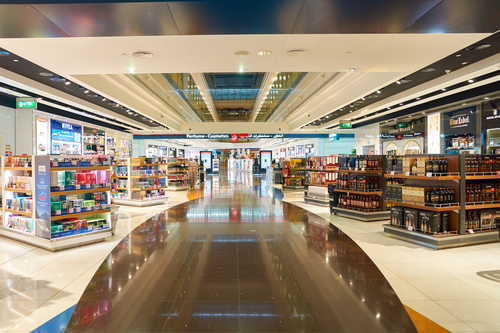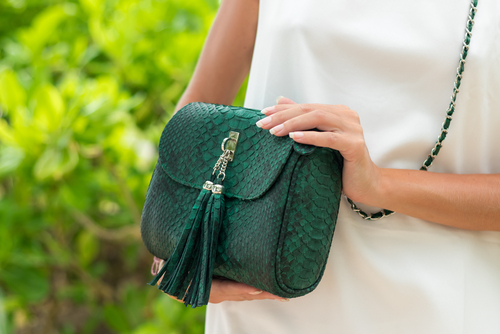Affluent Chinese consumers are projected to produce approximately forty four per cent with the international luxury use across the world by 2025, in accordance with McKinsey & Company. This would double their current level of spending to one trillion yuan (US$147 billion).
The consulting company, which issued a language industry report on June 13, also expects the total market share with the international luxury market to reach 2.7 trillion yuan (US$397 billion) in 2025, which will be mainly driven by China.
In 2016, Chinese buyers from rich households (7.6 million) spent over 500 billion yuan to purchase nearly one third of luxurious goods in the world. The average spending from these buyers on luxurious products was 71,000 yuan, which doubled that of a household in France or Italy.
Since 2008, the number of Chinese households that can afford luxury products has doubled thanks to the increase in their disposable income and the variety of shopping channels.
Next Challenge : retain the loyalty
McKinsey noted that, in recent years, these customers have become the established luxury customers. With Chinese shoppers maturing, it’s imperative for luxury brands to shift their focus from attracting new clients to adopting strategies to build and retain the loyalty of their existing ones.
The report highlights the importance of “in the purchasing decisions of Chinese buyers. Receiving positive reviews from friends and family will be the most important factor influencing the choices of luxury shoppers.
impulse buying
The practice of “impulse buying,” however, is still prevalent among Chinese buyers, making it a necessity for luxury brands to keep their labels at the “top-of-the-mind” when shoppers look for information on what to buy.
Regarding , McKinsey reported that official online stores of luxury brands currently accounted for only seven p.c of sales. The low conversion rate is not likely to be improved in the short term. However, the development of (O2O) channels in China might help brands attract more sales on their online platforms.
“quality,” “authenticity” and “price”
When it comes to factors that Chinese consumers look for when purchasing luxurious goods, “quality,” “authenticity” and “price” continue to matter. Chinese consumers are in pursuit of high quality, authentic products, and they’re sensitive about price.
Duty-free stores (both within the free trade zone and in airports), where products are offered tax-free, are the top channels for purchasing luxurious goods. Department stores and the brands’s specialty boutiques-places where authenticity is guaranteed-come next.
In terms of recommendations to luxury brands, McKinsey advises them to focus on improving the quality of their services and reducing the price difference between domestic and overseas purchases. Luxurious brands also need to ensure that buyers can find their core products in stores while also offering special editions, personalized services and local events.
The sharing economy in China : 10 % on the country’s GDP by 2020
The sharing economy is on the rise in China where customers are now able to rent high-priced handbags on WeChat or via mobile apps. After sharing taxis, bikes and many other products, the world’s second-largest economy has started to share luxurious goods, as outlined by a July 5 report.
Rent a luxurious bag
In line with the article in the global Times, which is a nationalist newspaper owned by the Chinese Communist Party, the current founders of many sharing platforms think “it is more economical and environmentally friendly to rent a luxurious bag as fashion accessories are replaced frequently.”
borrow a Luxury Bag
In order to borrow a luxury handbag, interested customers typically need to place a deposit of around RMB 19,000 (USD$2,794), while the cost of rentals generally ranges from RMB 99 (USD$15) to over RMB 1,000 (USD$147) depending on what type of bag is being sought.
China’s sharing economy is expected to grow rapidly in the next couple of years and is projected to contribute to over 10 % on the country’s GDP by 2020, based on the National Information Center. Many business professionals thus see great potential in the share economy.
The Beijing-based startup company Dou Bao Bao is one of your companies attempting to take advantage of it. In accordance with information on its official WeChat account, Dou Bao Bao specializes in renting high-end handbags from top-tier luxurious brands including Hermes, Louis Vuitton, Chanel, Christian Dior and Celine.
Dou Bao Bao has a WeChat account, which currently serves as the main platform for borrowers. It will also soon be launching an official mobile app. On WeChat, followers can view a list of products currently being offered by the company. By clicking on the picture of your handbag, viewers can see detailed information on the product, such as the price, the deposit amount and shipping details (they’re usually sent via SF Express, one in the best private shipping services in China).
how it works
The company requires customers to place a deposit of about ten times the monthly rental fee on the selected bag (which is repaid within seven business days after the bag is returned undamaged). It also pledges that the items are authentic, knowing that a major concern for Chinese consumers is that they might be loaned fake products.
Showing that there is support for the concept, in June, the company received more than 10 million yuan (USD$1,470,560) in funding from Chinese domestic investors.
Other startup on the Rise !
Another startup firm, Y-Closet, or “Yi Er San” in Mandarin, is copying the business model with the New York-based designer dress rental platform Rent the Runway but adapts it to intake habits of Chinese clients.
Innovative way
“Y-Closet only charges RMB 499 (USD$73) per month and you can take out three items of clothing at a time and swap them out as many times as you want,” said Doris Ke, the founder of Y-Closet about the difference between her company and Rent the Runway. “Plus someone will pick up and deliver to you. You don’t have to mail the product at all.”
Another innovative approach taken by Y-Closet is that it works with Zhima Credit, the credit rating service under Alibaba’s Alipay, which assesses the credit quality of a potential customer. If their credit score on the platform meets the minimum requirements, the deposit is waived for them.
You can contact us for any enquiery and see our 100 case studies.





1 comment
Slytherin76
Is it possible to have access to a report or something about luxury consumption? I would like to know more about Chinese luxury market